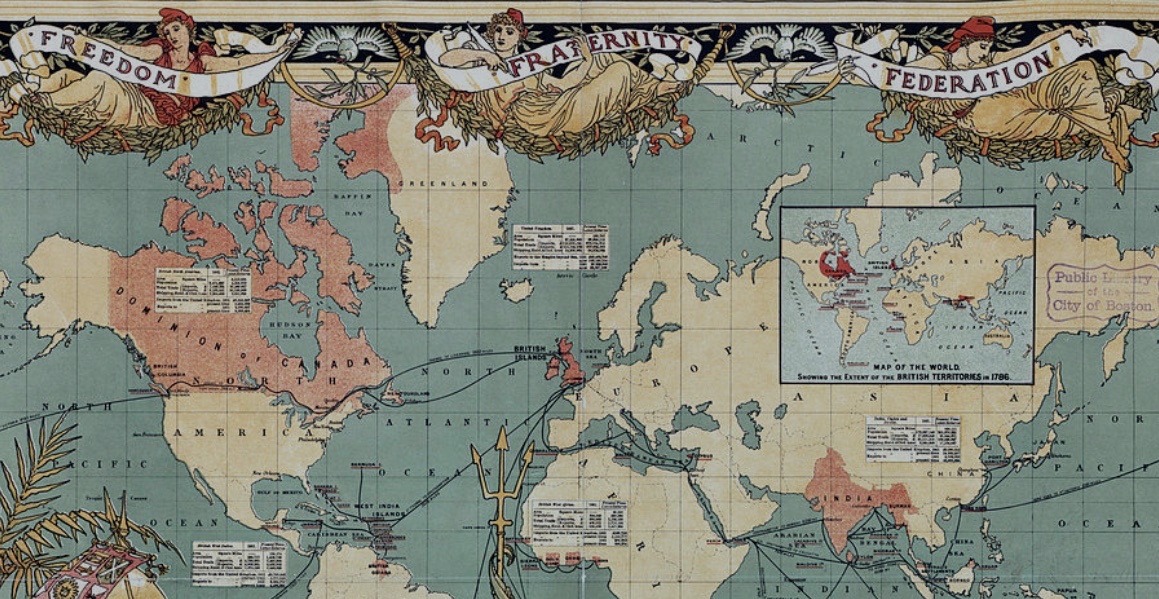These are live notes from a presentation by Dan Cohen for Boston University’s “Conversations in History” lecture series.
His talk is entitled “The State of Digital Humanities and What’s to Come.”
- retracing the past 10 years: “Our Cultural Commonwealth,” a report by a “blue-ribbon” committee put together by the American Council of Learn Societies’ Commission on Cyberinfrastructure for the Humanities and Social Sciences, recommended a central and active role for humanists and cultural practitioners in the construction and networking of digital cultural heritage
- scholars in the US have ceded ground to commercial enterprises (Google) and organizations such as HathiTrust; academic institutions in Europe (and Canada, I would add) have played a much more active role: Europeana, etc.
- looking ahead—cyberinfrastructure in 2013 and beyond
- Digital Public Library of America: http://dp.la (a Latvian domain name!); the “power of the web” for assembling, sharing, and using collections: the “link” or (anchor) tag as a central innovation
- “federated searches” and “faceted browsing” (filters!) via the DPLA, Smithsonian, Library of Congress, and friends; classification of objects is key to searchability and discovery; an ongoing process at the DPLA
- linked open data? establishing/providing a permalink for Plato’s “Allegory of the Cave”
- visualizing your own data in Zotero: bibliography, topic modeling, and beyond
- APIs (Application Programming Interfaces)—the foundation of web “services”—in the digital humanities? a fundamental question (and Cohen’s first blog post)
- data mining and data warehousing: can it facilitate public “applications” for history?
- open-ended futures: “[The DPLA should] act as a generative platform for undefined future uses.” – DPLA Working Group Agenda, May 2011
- accessioning Tweets at the Library of Congress: “maybe not ‘great’ human expression, but _a lot _of human expression”
- large, digital corpora and “unintended uses”: 9/11 archive + “Corpus of American Soap Operas” = rise of teen slang, trope of “evil double,” acceptance of gay and lesbian characters, etc.
- possibilities of material to digital text: (1) “Papers of the War Department, 1784-1800” and the stunning recovery of a burnt archive from scattered clerical copies; now being processed through public participants who enjoy transcribing George Washington’s handwriting; (2) the New York Public Library’s crowdsourced and developing archive of “19th-century menus”
Scholarly impact of such developments? Not replacing articles, monographs, and other traditional venues of scholarship—but may remake them along lines of collaboration (across disciplinary, national, and linguistic boundaries) and new forms of scholarly communication:
PressForward Publications project: The Open Web -> Relevant Content by field -> “Editor’s Choices” in a content field -> The Journal collects “best of” content on a quarterly basis = The Journal of Digital Humanities; rather than digitizing print content, exploring the possibilities of “digital-first” form and content
From changes in publication format to changes in social structures of the academy? “Social environments” of academic research and the “linked” format of the web.
Q & A: very interesting—so interesting, in fact, that I forgot to continue transcribing. I’m left wondering how grad students/programs should bridge the divide between writing and building. Or is this divide the next form of disciplinary specialization?
